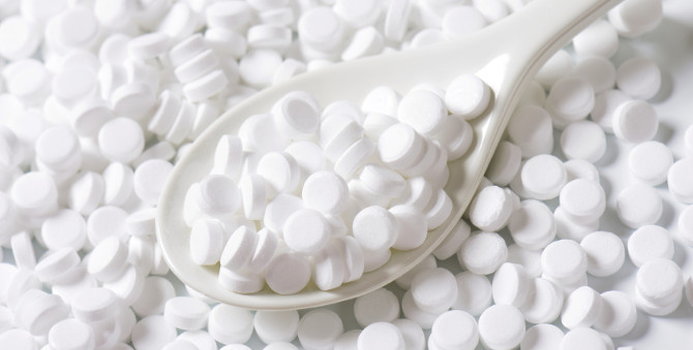The calorie-cutting benefits of artificial sweeteners are well advertised. While currently recognized as GRAS (Generally Regarded as Safe) by the FDA, some current studies have shown that these zero-calorie sweetener alternatives may not be as sweet of a deal as originally thought. When debating the addition of artificial sweeteners into a regular diet it is important to weigh the pros and the cons.
The Pros
For those trying to lose weight, replacing sugar with moderate amounts of artificial sweeteners may prove to be helpful. These sweet alternatives can help to cut calories on anything from cookies to iced tea. Cutting out foods or beverages containing added sugars and high fructose corn syrup and replacing them with an equally sweet, zero-calorie option can help you get the sweetness you crave while potentially saving your waistline.
Eating your favorite baked goods sweetened with artificial sweeteners may also be beneficial for your teeth. Oral bacteria works to ferment sugars stuck to your teeth to produce acids that can lead to tooth decay and cavities. Because the bacteria cannot break down artificial sweeteners, tooth demineralization is avoided.
Artificial sweeteners may also help to ease some struggles that many diabetics feel when watching their carbohydrate and sugar intake. Unlike traditional sugar, artificial sweeteners are not recognized by the body as carbohydrates, meaning they have a negligible effect on blood sugars.
The Cons
Most artificial sweeteners, with the exception of sugar alcohols and stevia, are man-made chemicals not found in nature. Because the human body was not designed to process these chemicals, our bodies are unable to absorb them. Instead, they sit in the GI tract where they can ultimately cause gas, bloating or diarrhea. In the case that some of the sweetener is absorbed, the body labels it as a foreign substance, sending it to our liver for detoxification, similar to how we process alcohol.
Artificial sweeteners may also lead to other cravings. Research has shown that the brain reacts the same way to artificial sweeteners that it does to sugary sweets. Consuming them often may lead to an increased desire for high-calorie foods, putting individuals at risk of weight gain. Also, because artificial sweeteners have a more intense flavor than real sugar, over time, products like diet soda or other artificially sweetened products can dull your senses to naturally sweet foods such as fruits.
Overall, while the benefits of using artificial sweeteners are apparent, using them in moderation is advised. A doctor or dietitian should be consulted before adding these sugar alternatives into a regular diet to ensure that the benefits outweigh the risks.

Sarah Dreifke is a freelance writer based in DeKalb, IL with a passion for nutrition education and the prevention of chronic disease. She holds a Bachelor of Science in both Dietetics and Life Sciences Communication from the University of Wisconsin-Madison. Currently, she is working towards a combined Master's Degree in Nutrition and Dietetics as well as a dietetic internship at Northern Illinois University.



